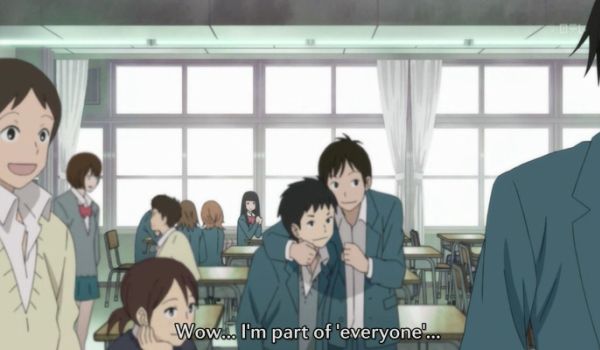SERVICE WITH A SMITE! Not conductive to visiting Heaven at night, unfortunately. Or so I’ve recently discovered.
In the book “The Essence of Buddha”, Ryuho Okawa has a disturbing and thought-provoking idea. Disturbing because it is so plausible, based on the notion that Heaven and Hell are not “elsewhere” but inside us already in this life. (Christian readers may remember Jesus saying this too.) Okawa’s spiritual bomb is that you can get a good idea from your dreams about which realm you belong to.
If you dream about being happy together with other people in peaceful places, this may be a glimpse of Heaven. But if you dream of darkness, fear and violence, chances are this is what you will experience when you leave your body permanently as well. After all, your dreams are fetching their content from the depths of your own soul: It is not like you are dreaming someone else’s dream, after all. Well, unless you are the prophet Daniel, I guess.
This, regular readers will realize, is bad news for me if true. Probably. Because most of the dreams I remember from my adult life are about either a) being scared out of my skin, b) killing people in war or self-defense, or c) humiliating sexual harassment of other people. This reached its peak in my late twenties, though it continued into my journaling years to some degrees. At least there was no overlap between b and c. I would wake from a dream of grabbing someone’s breasts and feel a sense of joy that at least I had not killed anyone this night!
Over the last years I seem to dream less. This may be a sign that the hellishness is receding. You see, if I actually do dream of being happy and peaceful, I am unlikely to remember it. I wake up if I am terrified, or if extremely excited, and then it is hard to go back to sleep immediately. Therefore I will remember whatever I dreamed just before. But otherwise I tend to sleep until my sleep clock gently wakes me, and in that slow transition from sleep to wakefulness the dream fades out of reach. I may remember that I dreamed something, but not what, unless it made a great impression. This is even more so now that I spend 30-90 minutes in slow-wave brainwave entrainment in the morning. For a dream to still be remembered after this, it better be remarkable.
As it happens, I had such a remarkable dream this morning, causing me to wake up an hour before the clock. Unfortunately for your chance of hanging out with me in The Realm of the Good in some years, it was about war. I dreamed that there was a war of some kind, and we were beset by the enemies, but snatched victory from the jaws of defeat through my supernatural leadership abilities. Talk about mixed messages – but then, that is a pretty accurate representation of how I feel.
Again, it bears mention that I don’t believe any of this “because Master Okawa said so”. That would be an insult to his work, as he strives to explain logically why he thinks we can use dreams as spiritual informants. His argument goes basically: Once you accept that there is an afterlife, the law of causality ensures that it depends on this life. This law is known in Buddhism as karma, and in Christianity by the verse “as a man sows, so shall he harvest”. Unless science, Buddhism and Christianity are all wrong on the same point, the current status of your soul is a pretty good hint of where you are heading at the moment.
(Of course, a major point of religion is to be able to change your future destination, but it is unlikely to just change randomly or through applied ritual without personal transformation. What is the point of going to Heaven if you make it a Hell for yourself and all around you? And if you act and think completely differently in Heaven than here, is it really you who went to Heaven at all, or just someone else looking like you? Do souls even “look” at all, are they not defined by how they think and feel, their attitudes and the assumptions on which they habitually act? If you are bitter and suspicious here, and someone happy and grateful show up on the Other Shore, whatever happened to the real you?)
So yeah, I think the man from Venus is onto something here. Dreams can give us a chance to reflect on ourselves, dredging up feelings and memories that need to be held up toward the Light. But they are probably not representative, unless you have some method to rapidly wake you up at random times and then leave you with enough time to jot down your dreams.
Oh, and about that dream… City of Heroes‘ subscriber expansion number 17 came out yesterday, and I had fun roleplaying my new Lightwielding character, Lord Septim Silver, all evening until bedtime. We totally steamrolled the villains and had tons of fun doing it. SERVICE WITH A SMITE! So, I am not completely sure how representative that dream was…









